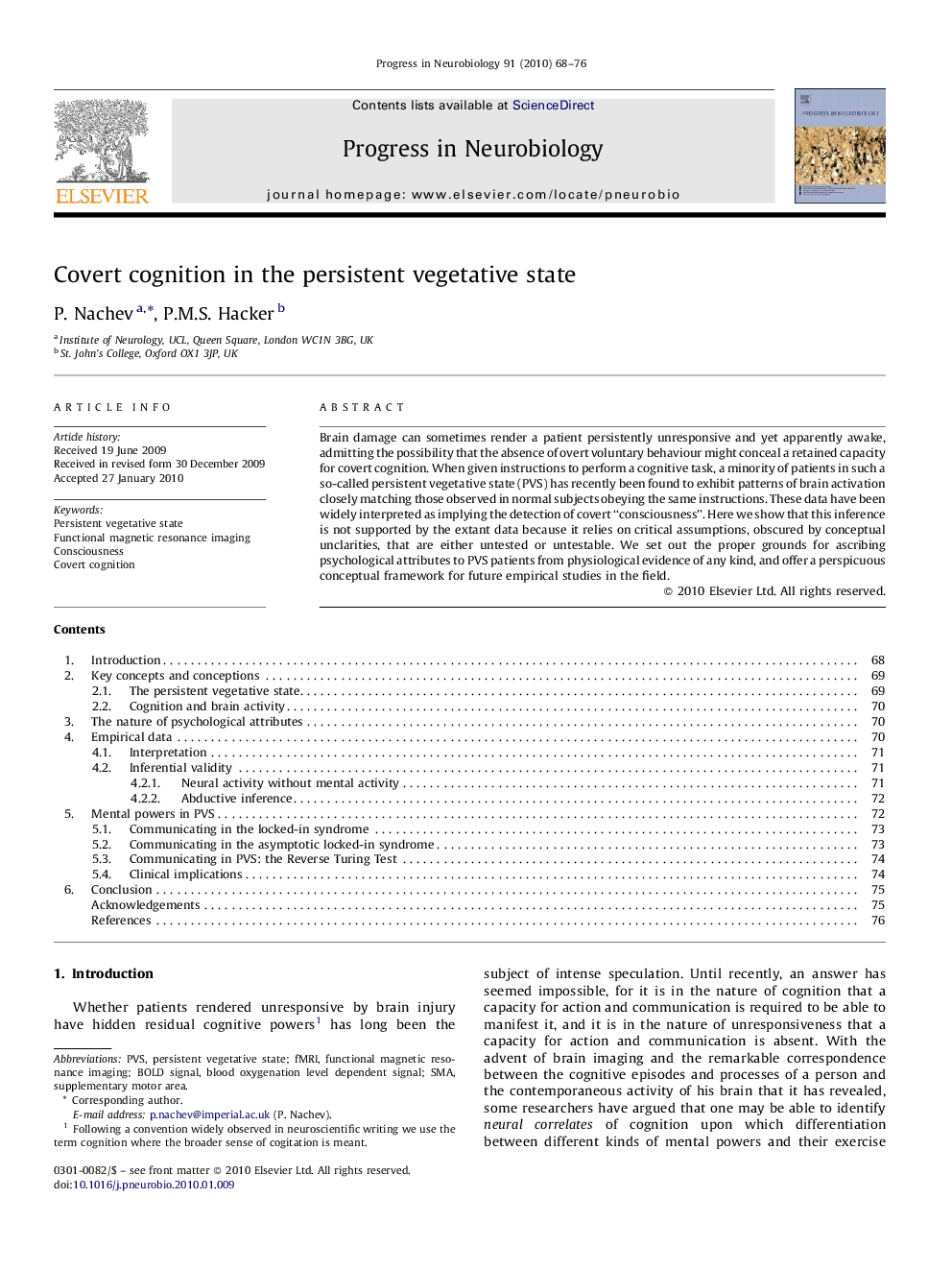| Article ID | Journal | Published Year | Pages | File Type |
|---|---|---|---|---|
| 4353662 | Progress in Neurobiology | 2010 | 9 Pages |
Brain damage can sometimes render a patient persistently unresponsive and yet apparently awake, admitting the possibility that the absence of overt voluntary behaviour might conceal a retained capacity for covert cognition. When given instructions to perform a cognitive task, a minority of patients in such a so-called persistent vegetative state (PVS) has recently been found to exhibit patterns of brain activation closely matching those observed in normal subjects obeying the same instructions. These data have been widely interpreted as implying the detection of covert “consciousness”. Here we show that this inference is not supported by the extant data because it relies on critical assumptions, obscured by conceptual unclarities, that are either untested or untestable. We set out the proper grounds for ascribing psychological attributes to PVS patients from physiological evidence of any kind, and offer a perspicuous conceptual framework for future empirical studies in the field.
